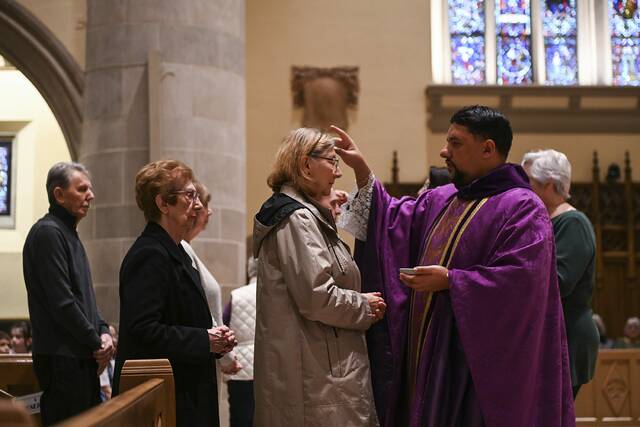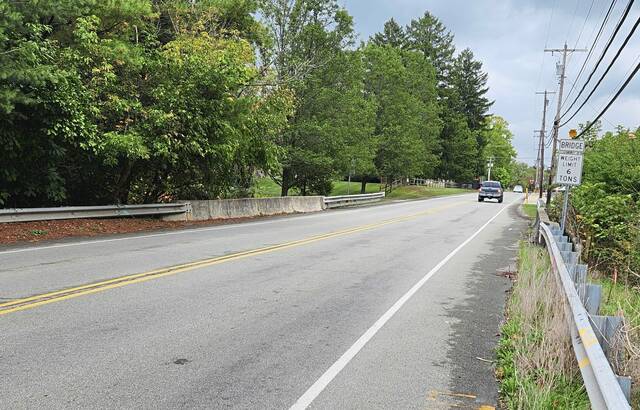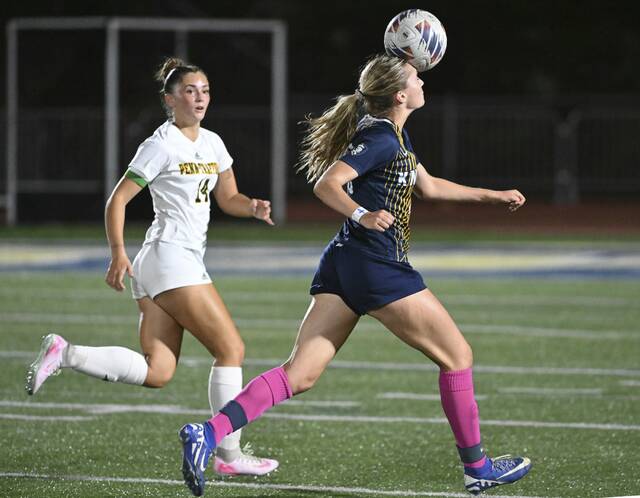Individuals who want to challenge a book or item they deem inappropriate in Hempfield Area School District would have more ways to do so under a policy proposed by the school board.
Board members who sit on the district’s policy committee last week dove into a proposal that would tweak how challenged materials are reviewed, continuing a monthslong conversation that began after some parents challenged two books available to high school students.
Major changes proposed include adjusting the makeup of the committees that review challenged materials and adding an appeals process.
“I feel we worked hard on this to provide (another) step, because we had two steps and now we have three steps,” Director Jeanne Smith said. “We put that in, and basically we put it in because people weren’t happy with the decision from the first step.”
The conversation began after some parents this spring questioned “All Boys Aren’t Blue” by George M. Johnson, which chronicles Johnson’s journey growing up as a queer Black boy. Parents also questioned “The Black Friend: On Being a Better White Person” by Frederick Joseph, which reflects the author’s experiences with racism.
A formal complaint was filed against the books, both of which went through the review process laid out in the policy.
That means a committee — made up of the school librarian, the library department chair, a teacher selected based on the content area of the book, a parent, a student, the complainant, the assistant superintendent and the superintendent — read the books and then met and reviewed each text using a series of questions from the policy.
It was ultimately determined the books could remain available to students.
Despite that determination, some parents continued to push for a change while suggesting those books are not appropriate for students.
That led to board members having deeper discussions about the policy and changes they might like to see.
Proposed changes
A draft of the proposed changes lays out the new review process, while specifying that the policy will “review challenges on the basis that the material challenged is inappropriate for a grade level of student that may access it due to explicit sexual content, graphic violence, hate speech or mature topics inappropriate for younger students.”
The language notes, however, that the district follows all state, local and federal rules regarding discrimination, meaning that if a complaint violates those laws, it will be rejected.
According to the draft, during an informal challenge, the complainant would be invited to a meeting within five days of the complaint filing. They would be asked to detail their objections and explain why they feel the material is inappropriate.
The building principal, librarian, teacher or other staff member would then explain the district’s selection procedure as well as the value of the material in the educational program.
If the complainant is not satisfied after that meeting, they can file a formal complaint, which would be referred to a reconsideration committee at the school level.
That committee, selected for “diversity of opinion and relevant expertise” by the building principal, would meet within 20 school days after the complaint is received, the draft reads.
It would be composed of at least one librarian, a teacher in the relevant subject area if the challenged material is instructional, at least one school or district-level administrator, community members and parents who are not employed by the district, the complainant and a student if the request is filed on the secondary level.
The parents and community members would be free from job-related pressures, will not face professional retribution if administrators disagree with the committee’s decision and “can therefore be less susceptible to internal pressures and biases. It is vital that parent/community voices do not outnumber those of trained educators.”
Related:
• Hempfield Area policy change would expand parents' role in review of challenged books• Hempfield Area continues debate on change to curriculum review of challenged books
• Librarians, parents weigh in on Hempfield's library book policy as some titles are questioned
During the review process, the committee will read or watch the material in its entirety while using the policy as a guide as they determine the material’s professional acceptance. They also would “weigh values and faults and form opinions based on the material as a whole rather than on passages or selections taken out of context.”
After 30 days of meeting, the committee will summarize its findings and submit it to the superintendent.
If the complainant is still not satisfied with the outcome, they can submit a request for an appeal within 10 days.
A second committee would then meet to evaluate the material and determine whether it conforms with the criteria for selection laid out in the school policy and is appropriate for its intended educational use.
According to the draft policy, the appeals committee will consist of a principal, teacher, librarian, assistant superintendent, school counselor or psychologist, a department chair or supervisor from the area of concern, two parents, two committee members and a high school student.
The committee will be asked to complete several tasks, including reading reputable and professionally prepared reviews of the material; reading all materials provided, including the full text of the material and all relevant critical reviews; and hear all members’ thoughts, questions and contributions.
They will be asked to set aside “personal beliefs and evaluate the material in light of the objective standards outlined in the library’s material collection procedures,” not pull passages or parts of the text out of context and make their recommendation based on the appropriateness of the material for its intended educational purpose.
Decisions made by the appeals committee will be binding for all district schools. Any materials that are challenged may not be challenged again for three school years.
Committee input
Committee members discussed the changes, at times disagreeing on the best way to proceed.
School Directors Jennifer Bretz and Tony Bompiani suggested following a policy similar to that used for Chromebooks.
“If something is not good, why would we have it in there in the first place?” Bretz said. “On a Chromebook, kids can’t have access to sexually explicit material and then we’re letting it in our library. We need to shelter. Our responsibility is education. That’s teaching reading, that’s teaching math, that’s teaching history, that’s teaching science.”
Director Diane Ciabattoni suggested students today are living in a different reality.
“Sometimes these books that I may not like have things that they’re living through,” Ciabattoni said.
Smith added that they are preparing children to live in the world, not just Western Pennsylvania.
“We don’t want to limit to just Western Pennsylvania and say, ‘You’ll be OK here, but if you go to some city you’ll probably be out of your depth because we curtailed all of your reading material,’ ” Smith said. “That’s why we have a library with intellectual freedom where kids can go and pick a book they want to read something about. We don’t hand that book to everybody.”
Committee members will continue the discussion during the next school board meeting at 7 p.m. Oct. 17 at the administration building adjacent to the high school.








